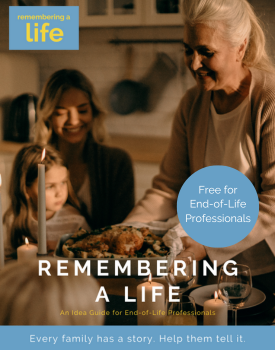In 2019, drug overdoses accounted for approximately 71,000 deaths in the United States; of those deaths, over 50,000 involved opioids, according to preliminary data released in June by the Centers for Disease Control. These numbers represent a 4.6% increase in overdose deaths from 2018, leading to concern that there could be even higher losses in 2020. However, no one could have predicted the impact of the COVID-19 pandemic on new cases of substance use disorders, rates of relapse for those in recovery, and overdose deaths. Recently, researchers at the Overdose Detection Mapping Application Program at the University of Maryland – Baltimore conducted a study in which they reported a staggering 17.6% increase in overdose deaths between March 19 and May 19 of this year.
While we will not know for years the long-term outcomes of this pandemic’s relationship to overdose deaths, we do know that in the midst of widespread grief over the loss of life experienced due to the novel coronavirus, there are also hundreds of thousands of individuals who are currently grieving the loss of their loved one to a drug overdose. While national attention may be focused on COVID-related deaths, the public health crisis of substance abuse is not only ongoing but is actually escalating in our current time of pandemic. Perhaps now more than ever, it is crucial that persons who are grieving due to an overdose death receive both recognition and support.
Understanding the Complexity of Overdose-Related Grief
When we consider all of the many grief emotions that may be present after the death of a loved one – including anger, guilt, sadness, depression, loneliness, hopelessness, and numbness – we recognize that we may not experience all of these emotions during every grieving experience. Moreover, we know that no two grieving experiences are alike: the weight and shape of each emotion can feel different or arise at different times during our mourning process. Therefore, grief is always already complex, individualized, and unique to each loss for every one of us.
If someone you love has died as a result of an overdose, your grief experience will be even more complex, and it can be complicated by the factors surrounding your relationship with your loved one, the way in which they died, and the responses you receive from others in your life. Complicating those “expected” grief emotions might be intensified anger – at your loved one; at yourself; at friends or family who ignored or enabled your loved one’s substance use; at medical professionals and pharmaceutical companies; or at people in your loved one’s life who supplied drugs or supported their substance use. Similarly, the sadness commonly felt after a death loss may feel more overwhelming due to the sudden and traumatic nature of an overdose death, while the loneliness many survivors experience could become isolating if your grief is unrecognized or unsupported.
In addition, survivors of an overdose death loss often experience feelings not commonly shared by those whose loved ones die through non-traumatic means, including:
- Guilt – You may feel guilty if your loved one died alone or if you had "unfinished business" with them. You might engage in a loop of “if only” or “should have, could have” thinking about your responses to their substance use, which may also lead to or exacerbate self-blame.
- Frustration – You might feel frustration with the health care system for not adequately treating your loved one prior to their death; alternatively, you could be feeling frustrated with medical professionals or first responders who were unable to revive your loved one or didn’t get to them in time.
- Shame – Because of the stigma that continues to be associated with addiction, illegal substance use, and overdose, you may feel shame both for loving and for grieving your decedent. This shame could make it harder to reach out to friends, family, or community members for support.
- Fear and anxiety – Both fear and anxiety are widely reported in survivors of an overdose death. These emotions may be particularly strong if other members of your family system or social group are either engaging in substance use, leading to heightened anxiety that they may die as well, or are in recovery, triggering fears of them relapsing.
- Relief – Often, though not always, an overdose death occurs after a significant period of addiction that impacted you and others in harmful ways, fostered fear and anticipatory grief within your family system, and involved many non-death losses. Survivors often express relief that they are no longer waiting for the next terrifying phone call, and they often express shame at feeling relief.
It is also important to recognize and validate that your grief experience will inevitably be complicated by cultural and individual misunderstandings of the nature of substance use disorders and addiction. Over the last twenty years, we have seen significant advances in our clinical understanding of substance use disorders as psychiatric disorders and addiction as a disease category. However, previously-reinforced beliefs that addiction itself is a choice and that drug dependency is solely a result of personal weakness continue to be overtly or subtly communicated throughout our cultural institutions and media. The effects of this outdated messaging may be devastating after your loss and can have long-term consequences on your health and well-being if you are unable to receive the support that you deserve.
Working through Grief after an Overdose Death
In the early days after your loved one’s death, you may be feeling shock and numbness due to the traumatic nature of their death and the suddenness of the loss. Then, you may begin to experience some or many of the complicated emotional responses discussed above.
As you work through your grief, it is important to validate these emotional responses – your loss was painful, unique, and complex, so there is nothing “wrong” or “unnatural” in experiencing feelings that are painful, unique, and complex. When I talk about “working through” grief or “responding” to grief, I never use the term “recovery.” Losing a loved one through traumatic and stigmatized means will not return us to the place in our lives or to the self we were before their death. We will be changed, but working through our grief is possible. And at best, we may, over time, gain meaning from our loss and attain purpose in how we navigate the changed world in which we live.
Because of the stigma surrounding an overdose death, you may at times question whether you deserve the kind of support and assistance that you would have expected if your loved one had died through another means.
You do.
You deserve all of the compassion, empathy, and care that would be extended to you if you were bereaved due to cancer or a car accident.
And the most important person to extend that care to you will be yourself.
I advise grievers of all types of loss to strive to support their physical and emotional health in the weeks and months following a death.
Typically, this self-care includes:
- Resting your body and mind even if regular sleep is not possible
- Establishing and maintaining some daily routines
- Eating healthy foods and staying hydrated
- Limiting alcohol consumption
- Engaging in physical movement, even short walks outside
- Checking in with yourself and your feelings, especially if feeling overwhelmed
- Paying attention to rapid and upsetting mood changes and taking steps to regulate them
- Seeking support from trusted family, friends, or counseling professionals
Due to the traumatic and complicated nature of overdose death bereavement, I would also encourage you to consider the following ways to help work through your grief:
- Finding ways to accept the reality of the way in which your loved one died and the role that substances played in their death
- Creating opportunities to honor your loved one and their memory, including all of the unique traits, dreams, and milestones they had and the value they brought to your life
- Expressing your grief creatively, whether through journaling or writing letters to your deceased loved one or using art, music, or collage to memorialize them
- Educating yourself and others about the complicated nature of addiction, which may help lessen feelings of guilt, shame, or self-blame over time
- Locating support amongst others who are bereaved due to overdose deaths or counselors with experience in substance use related deaths to lower your risk of experiencing disenfranchised grief
As you continue your grief journey over years, you may find meaning and purpose in civic action or with community groups that strive to support grievers and prevent future overdose deaths. You may choose to participate in International Overdose Awareness Day, occurring annually on August 31, or advocate for better education on substance use disorders and treatment options in educational settings. You might decide to become a member or leader of a self-help group for parents, partners, or children bereaved by overdose loss, or teach community groups how to respond to an overdose and administer naloxone, which is available to anyone in the U.S. for administration in an opioid emergency.
While nothing will ever erase the grief you feel over the death of your loved one, the complex emotions you may be feeling can be navigated healthily throughout your grief journey. Importantly, reminding yourself of your rights – your right to grieve, your right to support, and your right to honor your loved one – can help you take the steps needed on the difficult path ahead.
About International Overdose Awareness Day
For twenty years, organizers of International Overdose Awareness Day have provided educational resources and opportunities to participate in commemorating the lives lost to overdose death and the grief of survivors each year on August 31. Tributes to deceased loved ones may also be shared and published on their website.
Additional Resources
If you are the survivor of an overdose death loss, or if you would like to contribute to supporting survivors and preventing future overdose deaths, visit our Find Support page.


